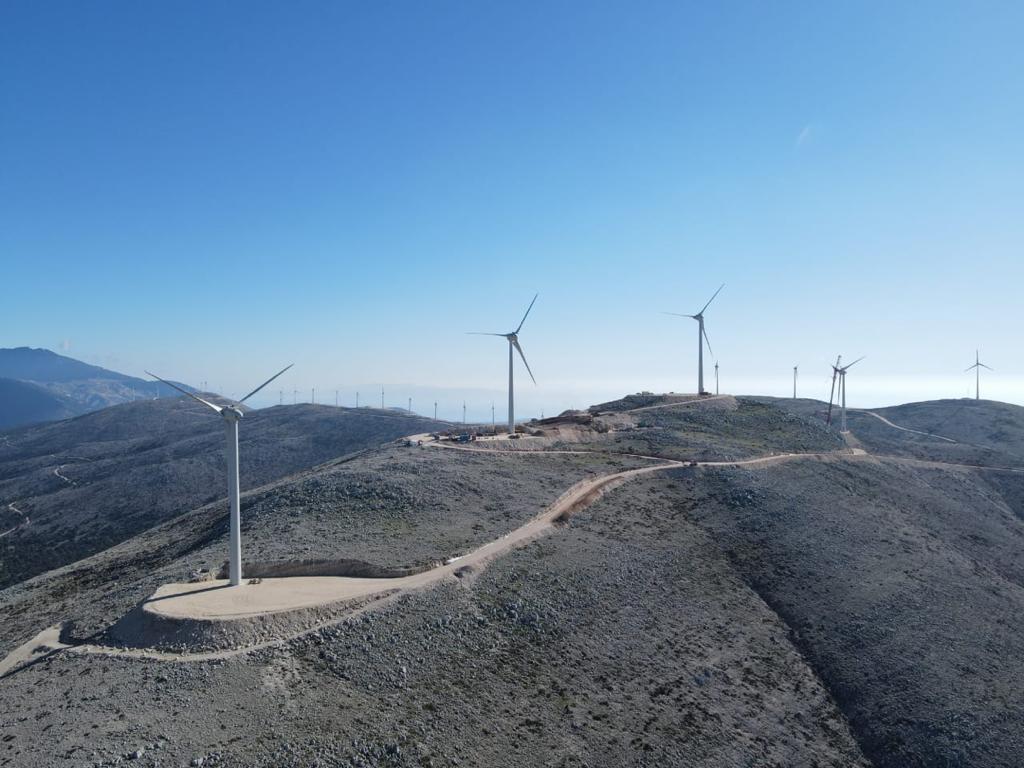
Numbers are never wrong. And for the first time in Greece they show that Renewable Energy Sources (RES) were during the first quarter of 2021 the first source of energy, surpassing fossil fuels and lignite. In particular, green energy from wind and photovoltaic parks, together with the hydroelectric power, managed to dominate the country’s electricity generation mix to the tune of 49.13%.
There were some small indications already from the previous year, when on June 8, 2020 not a single kilowatt hour was produced by burning lignite, after 70 years of “coal” domination in the Greek electricity production. It was preceded by a day without lignite in the largest energy region of the country, Western Macedonia on May 20, 2020. A few months later, on September 14, 2020, RES (wind and photovoltaic) covered 51% of electricity demand, and together with large hydroelectric plants covered 57% of daily electricity demand.
The impressive change in the electricity generation scene is clearly visible from the differences of the first quarter of 2021, compared to the corresponding period of 2020. In particular, according to the analysis of Independent Power Transmission Operator (IPTO) data published by the environmental think tank “The GreenTank”, the production of electricity from lignite was reduced by 22%, from natural gas by 4%, while a decrease is recorded in net imports by 71%. Respectively, the production of electricity from RES in the first three months of 2021 increased by 22% and from large hydropower plants by 249%, compared to the corresponding period of 2020.
“IPTO data clearly show that RES successfully cover the rapid decline of lignite without requiring an increase in the contribution of fossil gas and in fact with a drastic reduction of net electricity imports,” the political analyst for GreenTank Mr. Nikos Mantzaris noted to ot.gr. He added: “Under these circumstances, it is time to review the National Energy and Climate Plan – ESEK – and to review the plans for seven new fossil gas plants, in the light of the new pan-European climate target for 2030 “.
As the data show, green energy could support the country’s energy system, while strengthening energy storage infrastructure as a counterweight to RES variability. It is no coincidence that, since 2019, the Energy Regulatory Authority has received a total of 98 applications for storage technologies (batteries, pumped storage and hybrids), with a total capacity of 8,213 MW (megawatts), which together with the works for the pumping and storage unit in Amfilochia, amount to 8,893 MW, as stated by the President of the Authority Mr. Athanasios Dagoumas at an event of the Southeastern European Energy Institute (IENE) . In fact, the company received the Final Investment Decision and the construction of the project is planned to start next October in order for it to operate in 2025.
To date, RAE has approved a total of 65 licenses for storage projects, with a total capacity of 4.4 GW, while 34 licenses for 4.5 GW are pending approval. In any case, the Authority should proceed with judging the projects, as is the case with the overflow of applications for new RES projects as the energy system does not have room for all of them.
Zero net energy imports
The data concerning the period April 19 – April 25 are also interesting, when a rare “phenomenon” was recorded with zero net energy imports. In particular, according to the energy analysis of IENE, the high prices in foreign electricity markets that continued, following the increase in international prices of both natural gas and emissions, put pressure on the Greek system as export flows increased.
However, the pressure eased on the one hand due to the small decline in demand and on the other hand due to the increased production of hydroelectric and RES units, thus reducing imports. In particular, the total electricity imports in Greece last week amounted to 119,555 MWh. Respectively, the total electricity exports of Greece last week amounted to 122,865 MWh.
As for the fuel mixture in the electricity generation, the RES units “saw” their contribution at 34% and the hydroelectric units at 6%. As for the gas units, they covered 51% of the demand, and lignite production 9%, while the net imports were zero.
Latest News

Airbnb Greece – Initial CoS Ruling Deems Tax Circular Unlawful
The case reached the Council of State following annulment applications filed by the Panhellenic Federation of Property Owners (POMIDA)

Mitsotakis Unveils €1 Billion Plan for Housing, Pensioners, Public investments
Greek Prime Minister Kyriakos Mitsotakis has announced a new set of economic support measures, worth 1 billion euros, aiming to provide financial relief to citizens.

Alter Ego Ventures Invests in Pioneering Gaming Company ‘Couch Heroes’
Alter Ego Ventures' participation in the share capital of Couch Heroes marks yet another investment by the Alter Ego Media Group in innovative companies with a focus on technology.

Corruption Still Plagues Greece’s Driving Tests
While traffic accidents continue to claim lives on Greek roads daily, irregularities and under-the-table dealings in the training and testing of new drivers remain disturbingly widespread

Pope Francis Died of Stroke and Heart Failure Vatican Confirms
As news of the official cause of death spread, tributes poured in from across the globe. The 1.4 billion-member Catholic Church is united in grief, remembering a pope who championed inclusion, justice, and compassion

Increase in Both Museum Visits, Revenues for 2024
As expected, the Acropolis was the top archeological site in the country, followed by Sounion, Mycenae, the ancient theater of Epidaurus, and Vergina in northern Greece

Where Greece’s Tourists Come From: A Look at 2025’s Top Visitor Markets
The United Kingdom continues to hold the top spot as the largest source of incoming tourism, with 5.6 million seats booked for Greece this summer — up 2.2% from last year. This accounts for 20% of all international air traffic to Greece

Pope Francis: A Pontiff Who Reshaped the Papacy and Sparked a Global Conversation
His first words from the balcony of St. Peter’s Basilica—“Brothers and sisters, good evening”—set the tone for a pontificate that would challenge norms, favor mercy over dogma, and bring the papacy closer to the people.

When Blue Skies was Unmasked as ND’s Political ‘Slush Fund’
The fact that so many top New Democracy (ND) party cadres were paid by the firm Blue Skies, owned by Thomas Varvitsiotis and Yiannis Olympios, without ever citing this publicly, raises very serious moral issues, regardless of the legality

Greek Women’s Water Polo Team Top in the World after 13-9 Win Over Hungary
The Greek team had previously defeated another tournament favorite, the Netherlands, to reach the final.











![Πλημμύρες: Σημειώθηκαν σε επίπεδα ρεκόρ στην Ευρώπη το 2024 [γράφημα]](https://www.ot.gr/wp-content/uploads/2025/04/FLOOD_HUNGRY-90x90.jpg)




![Ξενοδοχεία: Μεγάλο το ενδιαφέρον για επενδύσεις στην Ελλάδα – Η θέση της Αθήνας [γραφήματα]](https://www.ot.gr/wp-content/uploads/2025/03/Athens-hotels-90x90.jpg)
























 Αριθμός Πιστοποίησης
Αριθμός Πιστοποίησης